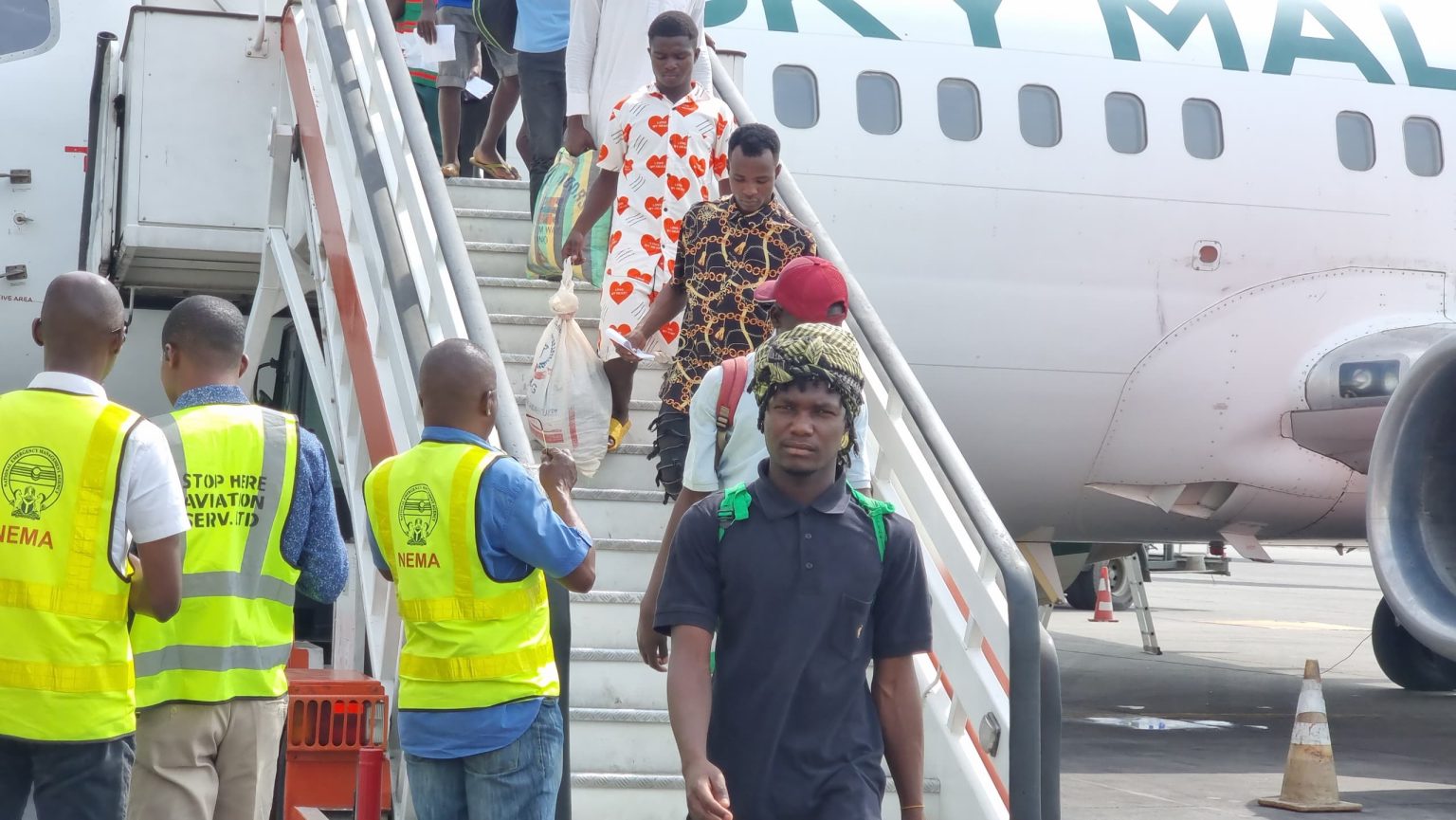The Plight of Stranded Nigerians and Government Repatriation Efforts
The first four months of 2025 witnessed a significant humanitarian effort by the Nigerian Federal Government, in conjunction with the International Organisation for Migration (IOM), to repatriate over 2,000 Nigerian citizens stranded across various countries. The majority of these returnees, facing precarious circumstances in Niger and Libya, were brought back home through a series of carefully orchestrated evacuation operations. This collaborative initiative underscores the government’s commitment to protecting its citizens abroad and addressing the challenges of human trafficking and migration.
A detailed breakdown of the repatriation figures reveals the scope of the crisis and the government’s response. A total of 750 Nigerians were repatriated from Niger, while 1,303 returned from Libya. An additional 140 individuals were evacuated from Sudan, highlighting the diverse geographical spread of the issue. These figures paint a stark picture of the risks and vulnerabilities faced by Nigerians seeking opportunities abroad, often falling prey to exploitative schemes and finding themselves in dire situations.
The repatriation efforts unfolded over several months, with varying numbers of returnees each month. In January, 542 Nigerians were brought back from Niger and Libya. February saw the return of 664 individuals from the same two countries. March witnessed a larger wave of repatriation, with 640 Nigerians returning from Sudan, Niger, and Libya. Finally, in April, 347 more individuals were flown back from Libya. These figures represent a significant logistical undertaking, involving coordination between multiple agencies and countries.
It’s crucial to note that these figures do not encompass the separate repatriation effort of 231 Nigerians trafficked to Ghana. This separate incident emphasizes the pervasive nature of human trafficking and the ongoing need for vigilance and intervention. The exploitation of vulnerable individuals seeking better prospects remains a significant concern, requiring concerted national and international efforts to combat.
The Nigerian government, through the Ministry of Foreign Affairs, has issued stern warnings to its citizens, particularly young people, about the dangers of fraudulent job offers promising opportunities abroad. The allure of overseas employment can often lead individuals into dangerous situations, highlighting the importance of verifying such offers through official channels. The government’s proactive stance in raising awareness aims to mitigate the risks faced by those seeking opportunities beyond Nigeria’s borders.
The collective repatriation efforts of the Nigerian government and its international partners demonstrate a commitment to protecting its citizens abroad. However, the underlying issues driving migration and vulnerability to exploitation require sustained attention. Addressing these root causes, including unemployment, poverty, and lack of access to education and opportunities, remains crucial to reducing the flow of Nigerians into precarious situations abroad. The government’s ongoing efforts to create a more conducive environment within the country, combined with stricter measures against traffickers and fraudulent recruitment agencies, are essential for long-term solutions. International collaboration, sharing of information, and joint strategies are also pivotal in addressing the transnational nature of human trafficking and irregular migration.














